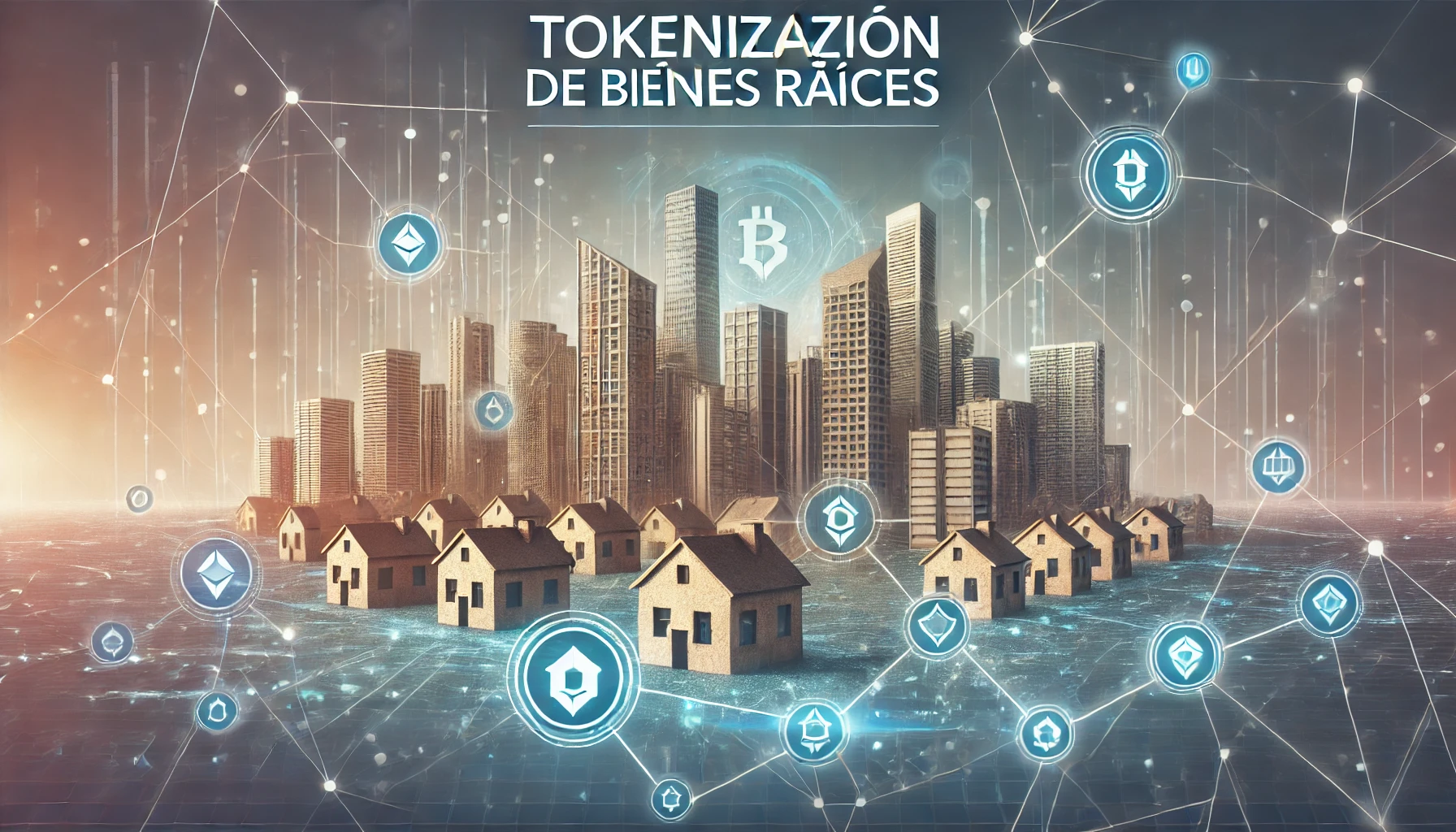In the world of real estate investing, real estate tokenization is emerging as a revolutionary trend.
If you’ve ever wondered what tokenizing Real Estate means, how it differs from other types of tokenization and what advantages it offers, this article is for you.
We will explore in detail the process, the types of tokens and the legal implications, among other crucial aspects.
What is Real Estate Tokenization?
Real estate tokenization involves the conversion of the economic rights of real estate assets into digital tokens that can be fractionalized and transferred using blockchain technology.
This process allows for efficient representation and transfer of fractions of value on an asset, providing a safer and faster alternative to traditional securities trading systems.
How does Real Estate Tokenization work?
Selection of the Asset
The first step in tokenization is to select the real estate asset to be tokenized.
This asset can be a residential property, commercial property or any other type of real estate.
2. Due Diligence
A thorough due diligence is carried out to assess the value and condition of the asset, ensuring that all documentation and legal aspects are in order.
This analysis includes the review of deeds, certificates of outstanding debts and annual accounts at the Commercial Registry.
3. Token Creation
Once the due diligence has been completed, tokens representing fractions of the value of the property are created.
These tokens are issued on a blockchain platform, guaranteeing the security and transparency of the transactions.
4. Token Offering
Tokens are offered to investors in an initial public offering (STO) or private sale.
Investors can purchase these tokens using cryptocurrencies or fiat money, depending on the terms of the issuer.
5. Asset Management and Profit Sharing
After the sale of the tokens, the asset is managed to generate returns that are distributed to the token holders in accordance with the terms set forth in the securities offering.
Differences between Security and Utility Tokens
Security Tokens
Security tokens represent rights to future cash flows generated by the issuer’s principal activity.
In the context of real estate, this means that security token holders are entitled to a share of the income generated by the real estate, such as rents or capital gains on sale.
These tokens are issued in Security Token Offerings (STOs) and are subject to financial securities legislation.
Utility Tokens
Utility tokens, on the other hand, represent a right to use a specific asset or service within a decentralized platform.
They do not offer direct economic rights to an asset.
An example in the context of real estate could be a token that grants access to exclusive services in a tokenized building, such as the use of common areas or discounts on space rentals.
Another example could be a token that grants exclusive privileges on the issuer’s platform, such as preferential access to investment opportunities or higher investment returns.
Benefits of Real Estate Tokenization
Fractionation and Accessibility
Tokenization allows the value of the property to be fractioned, making it easier for investors of all sizes to participate in the real estate market.
2. Improved Liquidity
The creation of secondary markets allows for easy buying and selling of the tokens, improving the liquidity of the real estate asset.
Transparency and Security
Blockchain technology provides an immutable and transparent record of all transactions, increasing confidence and security for investors.
4. Cost Reduction
The use of smart contracts and the elimination of intermediaries significantly reduce the costs associated with buying, selling and managing properties.
Real Estate Tokenization Use Cases in TRE
At Tokeniza, we are experts in Real Estate Tokenization and offer comprehensive services ranging from a standardized tokenization protocol to the trading of tokens on our platform.
We use the best technology available and provide maximum legal protection to the investor.
Our investor community can find in our marketplace a variety of use cases that solve real problems in the real estate market.
Non Performing Loans (NPL)
Benefits of Tokenizing NPLs: NPLs are bad loans that financial institutions want to sell to improve their balance sheets.
Tokenization allows investors to acquire these loans at a discount and benefit from foreclosure, thereby improving capital recovery and offering an investment opportunity with potential for high returns.
Shared Space Businesses
Benefits of Tokenizing Shared Spaces: This business model involves the creation of shared spaces (co-working, co-living) financed by a community of investors.
Tokenization facilitates fractional investment and decentralized management of the business, promoting greater participation of users and investors and increasing the sustainability and profitability of the project.
Multiple Ownership Properties
Benefits of Tokenizing Properties with Multiple Owners: Ideal for properties with multiple owners who wish to economically exploit their property without conflict or excessive bureaucracy.
Tokenization allows for property capitalization and efficient property management, offering owners a way to monetize their stake in a simple and transparent manner.
Conclusion
Real estate tokenization is transforming the way we invest in and manage real estate.
By understanding the basics of tokenization, the types of tokens and the benefits it offers, you can take advantage of this innovative process to diversify your investment portfolio and access new opportunities in the real estate market.
If you are interested in tokenizing a real estate project, learning more about how it works or investing in tokenized opportunities, don’t hesitate to contact us.
Our team of experts is here to guide you through every step of the process and help you make the most of the advantages of Real Estate Tokenization.
Do you want to know if you can invest in our tokenizations?
Fill in the form and download our detailed investor guide.

